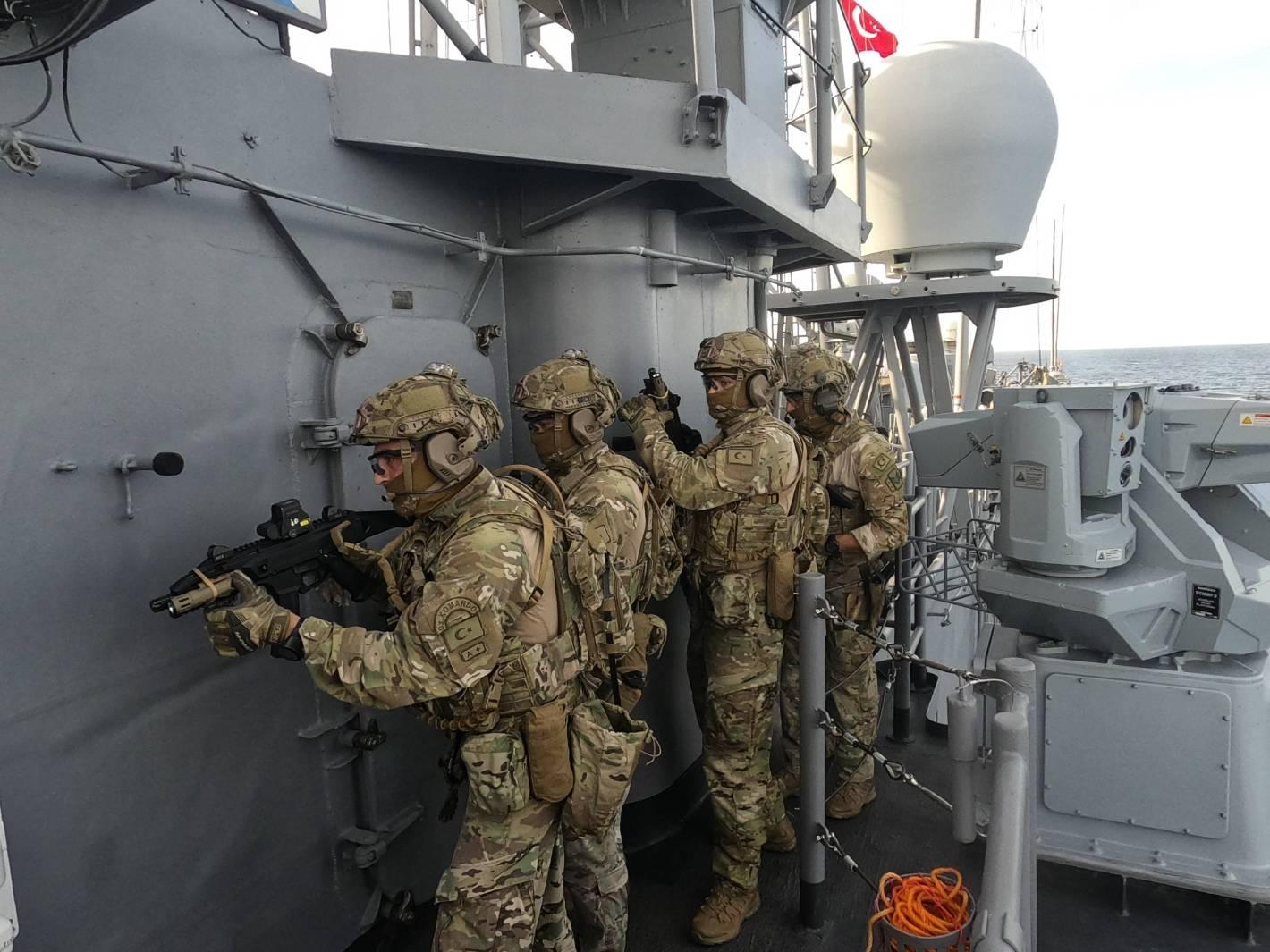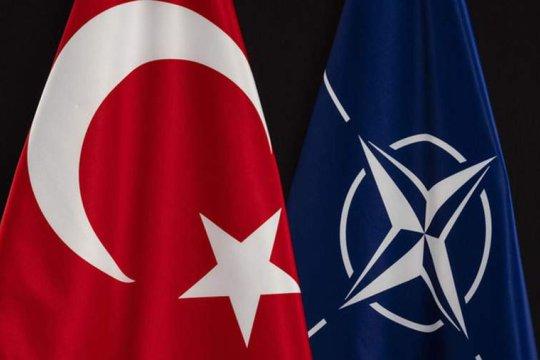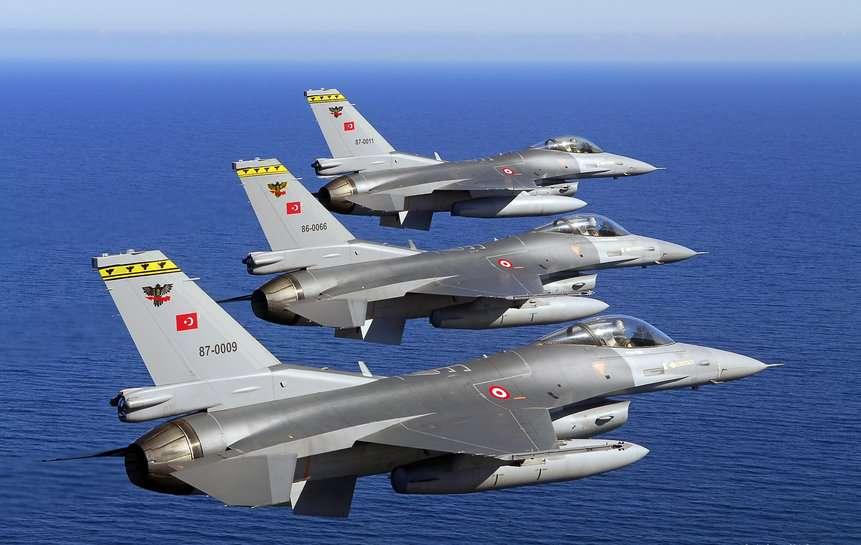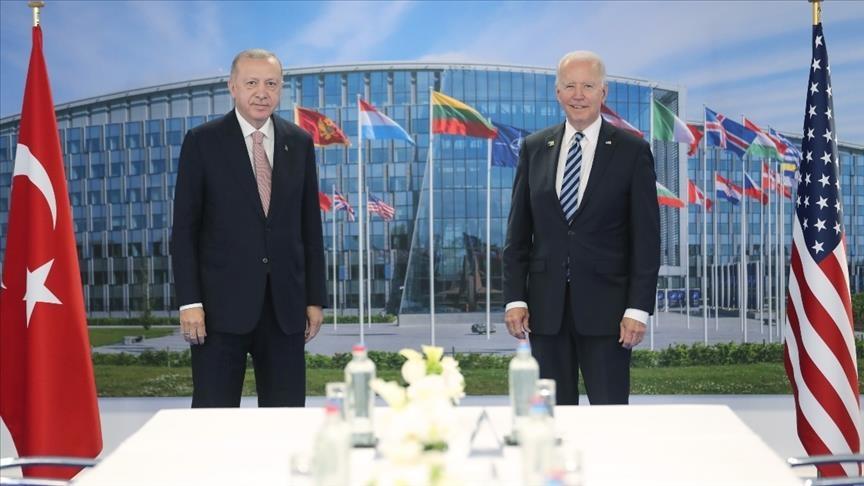Türkiye's strategic pivot towards the West Economic incentives and geopolitical maneuvers
Between 2018 and 2021, the Republic of Türkiye faced significant contradictions within NATO and entered into conflict with the European Union. However, currently, Ankara's cooperation with the countries of the collective West has strengthened, despite some lingering disagreements.
Rising tensions and detente
NATO and the US remain deeply dissatisfied with Ankara's acquisition of the S-400 missile defence systems from Moscow. As a consequence, the US excluded Türkiye from the F-35 fighter jet production and acquisition program, despite Türkiye having already invested around $1.5 billion in it.
Additionally, Türkiye's rapprochement with Russia and Iran through the Astana process (an initiative where the three countries negotiate their spheres of influence in Syria) has caused significant concern in the West. This concern is further heightened by Türkiye's increasing purchases of Russian energy resources and the construction of the massive Akkuyu nuclear power plant by Russian companies, a strategic project valued at $25 billion. It has become clear that Ankara intends to pursue an independent path in foreign policy, energy, and arms procurement.
Additionally, a conflict arose between Türkiye and a group of Middle Eastern and European countries. Ankara signed an agreement on the delimitation of maritime borders with the internationally recognized Libyan government. This caused dissatisfaction among a large and influential group of countries, as significant gas fields and routes for a pipeline to Europe fell within the designated zone. Later, Greece, which was competing with Türkiye in this area, signed a similar agreement on the delimitation of maritime borders with Egypt. This led to a direct conflict between both countries and Türkiye, as the Greek-Egyptian zone and the Turkish-Libyan zone overlapped.

As a result of the escalating rivalry, a coalition of states began to form against Ankara. This coalition included Egypt, Greece, and their allies—the UAE, Saudi Arabia, Cyprus, Israel, and France. Their claims were supported by the European Union and, to some extent, the United States. The gas and maritime conflicts were compounded by traditional disagreements between Türkiye on one side, and Greece and Cyprus on the other, related to maritime borders, the status of divided Cyprus, and so on.
The atmosphere grew tense, with the threat of war looming. Clashes followed, although without the use of weapons, between the Turkish Navy and Greek and French military ships. The parties involved in the conflict began to be drawn into a proxy war in Libya, where the threat of direct military confrontation between Türkiye and Egypt emerged. It appeared that NATO, as French President Macron indicated, was dying because what "we are currently experiencing is the brain death of NATO." After all, Türkiye, France, and Greece are all NATO members!

Even before the outbreak of conflict in Ukraine, the Middle East, and Europe, a rapprochement began among several countries. This development is tied to complex processes, as the involved powers were on the brink of war. Ultimately, neither the Greeks, Saudis, Egyptians, nor Turks desire war today. Furthermore, a coalition of powers started to form against Türkiye, which diplomats in Ankara found disadvantageous.
Economic ties as a motor for detente
Economic considerations played a significant role in changing Middle Eastern and European policies. Türkiye, a powerful export-oriented nation, relies heavily on the vast European market, where it exports the lion's share of its products. Thus, it needs favourable trade relations with Europe, not EU sanctions, which were being discussed in Brussels at the time. On the other hand, to balance its inflation-hit economy, Ankara needs foreign investors. This applies to both Middle Eastern countries, particularly the oil monarchies of the Persian Gulf, and European states.
Murat Kubilay, an independent financial expert and well-known economic commentator in Türkiye, explains why Türkiye needs investors. Highlighting the "need to increase international investments," he notes that "previous methods of addressing this issue, such as swap agreements tied to political connections with foreign governments and selling state assets to foreign investors, cannot offset the short-term external debt of $232.1 billion and the additional current account deficit of nearly $24-34 billion." Without additional investments, these problems cannot be solved. Therefore, Ankara's task is to inject tens, and eventually hundreds, of billions of dollars into the economy from sources including the UAE, Saudi Arabia, Europe, and the US.
Another economic factor driving Türkiye's rapprochement with NATO and the US is the "friendshoring" policy being pursued by the collective West. Facing Russia and China, the West has begun to gradually shift away from globalization. It has concluded that it can no longer relocate production, technology, and capital to unfriendly countries. Instead, the West is transitioning to producing and sourcing raw materials from countries that are geopolitical allies, making this policy synonymous with the creation of trading blocs.
As noted by one of the leading contemporary economists and former World Bank chief, Branko Milanovic, this signifies a shift towards forming trading blocs. These blocs align with the emerging new military-political alliances in today's world, which is a troubling sign of the threat of global conflict. Such blocs are often formed in the lead-up to global conflicts related to the redistribution of world resources, markets, and property.
Nevertheless, within the framework of the "friendshoring" policy, Western companies and governments are seeking cooperation as a way to maintain access to international markets and supply chains while reducing geopolitical risks. Countries that are outside the sphere of Western influence or that oppose it may be excluded from production chains, losing access to advanced Western technologies, investments, and markets. This situation is highly unfavourable for Türkiye, which has an export-oriented economy closely integrated with the European Union (Ankara primarily exports cars, steel, and textile products to Europe).
Recognizing this, Türkiye approved NATO's expansion to include Finland and Sweden, and in exchange, secured the right from the US to purchase 40 new F-16 aircraft in the advanced Block 70 version and 80 kits to upgrade existing F-16s to this enhanced version. The total value of the deal was $23 billion and pursued not only military objectives. For Türkiye, it was important to strengthen ties with the US economy and its government.

Meanwhile, Ankara is negotiating the purchase of 60 Eurofighter Typhoon fighter jets from Europe and intends to acquire civil aircraft as well. In December, Türkiye's national flagship carrier, Turkish Airlines, announced its largest aircraft acquisition deal in history. This involves more than 350 airliners worth $70 billion. The company plans to purchase the aircraft from Airbus, which is owned by a French, German, and Spanish consortium. The deal with Airbus is significant for Turkish-German relations, not only because of its value.
Well-informed Turkish journalist Murat Yetkin speculated that Ankara might bundle the purchase of civilian Airbus aircraft with the Eurofighter Typhoons into one package, to facilitate obtaining approval from German politicians for the sale of the fighter jets. Additionally, European companies are preparing for China’s entry into the civilian airliner market, leading to intense competition. In this context, it is crucial for Airbus, and thus for European manufacturers and their associated politicians, that Türkiye remains on their side.
Although disputes with Greece remain unresolved, the meeting between Greek Prime Minister Kyriakos Mitsotakis and Turkish President Recep Tayyip Erdoğan in May of this year prompted many experts to herald a "new era of goodwill" between Ankara and Athens. The Turkish and Greek leaders expressed their commitment to a "spirit of goodwill and cooperation" and pledged to increase bilateral trade from $6 billion to $10 billion. During the visit, agreements were signed on disaster relief, healthcare cooperation, and other areas.
Türkiye’s rapprochement with the West is transactional in nature, resembling a series of deals based on the win-win principle. This dynamic is particularly evident in the negotiations surrounding the F-16 aircraft and Sweden's NATO accession. Ankara and Washington engaged in extensive negotiations, with Türkiye seeking approval for aircraft deliveries in exchange for its support of Sweden's admission to the alliance. Despite the complexities, the deal was successfully concluded, and cooperation is gradually strengthening. Economic factors are expected to play a pivotal role in this evolving relationship.

At the same time, Türkiye has not abandoned its trade and political ties with Russia. Trade turnover with Moscow reached $70 billion in 2023 but began to decline the following year. Strengthening Türkiye's relations with Russia under current conditions, especially after the onset of the Ukraine conflict in 2022, is becoming increasingly problematic due to the threat of Western sanctions. Some banks are severing their ties with Moscow, and Türkiye risks facing sanctions itself. Given Türkiye's need for new investments, advanced technologies, and access to the vast European market, such sanctions would be unacceptable to the government.
Before the 2023 elections, representatives from international investment funds with a total capital of $1.5 trillion visited the country. According to Bloomberg, they promised to transform Türkiye into a "star of emerging markets." However, they cautioned that they require a stable Turkish currency (lira), a strong fight against inflation (as there is little incentive to invest in a depreciating lira), and predictable foreign policy (to avoid investors being caught in sanctions). In this context, Ankara is not interested in additional Western sanctions that could result from cooperation with Moscow. This has led to a cooling of both political and economic partnerships with Russia.
Geopolitical dimension
Alongside economic factors, the growing rapprochement with the West is driven by geopolitics. Türkiye's alignment with NATO is linked to the conflict in Ukraine. Ankara is supplying Kyiv with advanced weaponry. As noted by American diplomat and leading Middle East foreign policy expert James Jeffrey, Türkiye aims to strengthen its influence in the Black Sea and thus finds the revival of the USSR unacceptable in any form. Türkiye opposes any strengthening of Russia’s position in the Black Sea, and to prevent an undesirable scenario, it provides certain support to Kyiv.
On the other hand, the development of nuclear and missile programs by Iran, a neighbouring country with which Türkiye has serious disagreements and which is increasingly aligning with Russia, is also a factor driving Ankara closer to the Western bloc and NATO— the forces opposed to Moscow and Tehran.
Thus, the strengthening of Türkiye's pro-Western stance has deep financial, economic, and geopolitical reasons. However, these should not be overestimated. Firstly, economically, Türkiye depends on exporting its industrial products to the West, importing cheap goods from China, and receiving affordable energy supplies from Russia. Secondly, in international politics, Türkiye continues, as it has for years, to pursue a policy of manoeuvring between powers. This approach allows it to benefit by telling each partner: "If you do not agree to our terms, we will increase cooperation with your geopolitical rivals."
Nevertheless, the strengthening of Türkiye's pro-Western orientation is leading to a cooling of relations between Ankara and Moscow.
The views and opinions expressed by guest columnists in their op-eds may differ from and do not necessarily reflect the views of the editorial staff.








